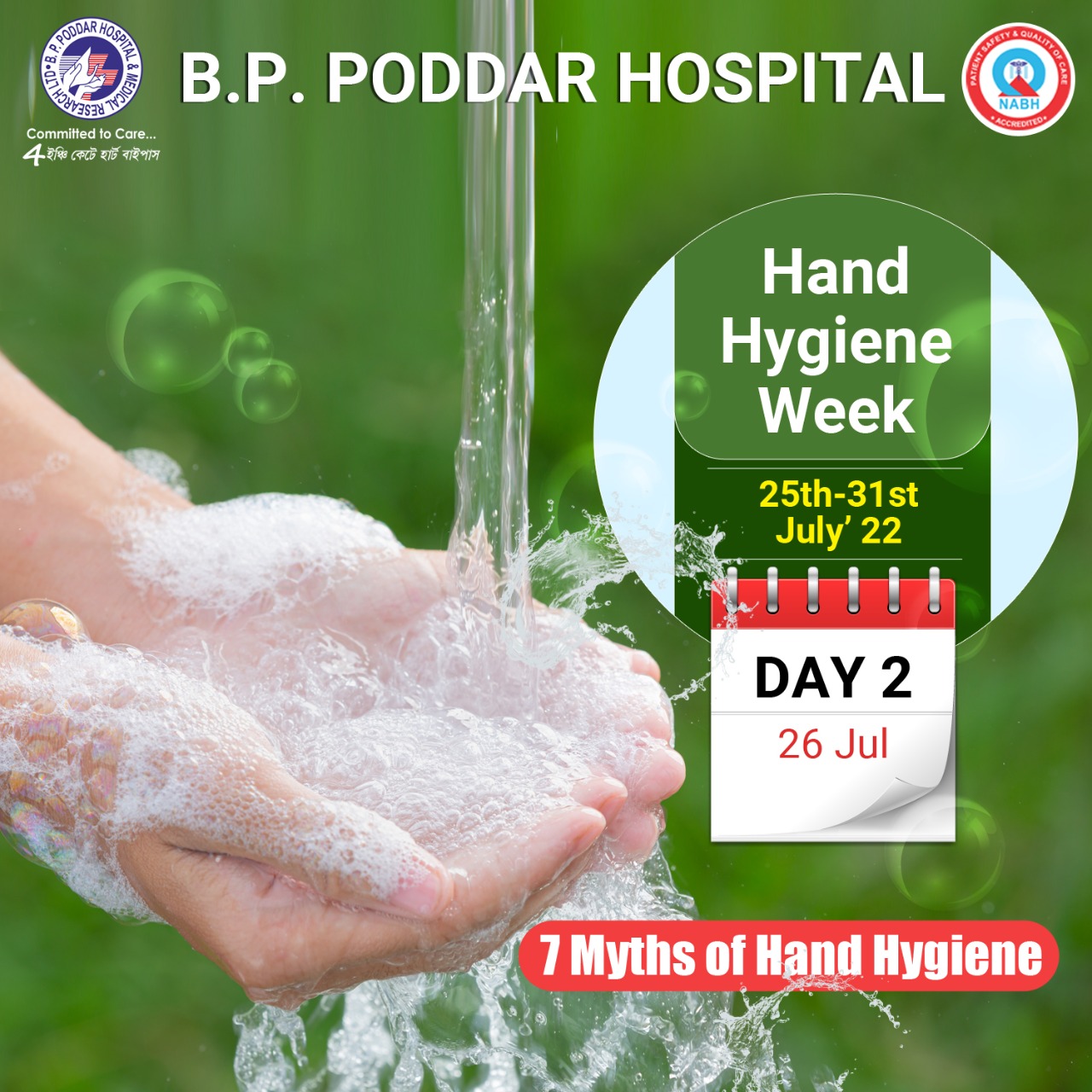- Emergency Admission : +91-8585035846
- Email :feedback@bppoddarhospital.net

Over the past few years, there has been a lot of talk about the importance of often washing our hands as a way to safeguard our health, our well-being, and those around us. This is because hand washing is essential for preventing the spread of viruses and managing bacteria, both of which are crucial in the current climate. It may seem straightforward to wash your hands or put on gloves, but it's important to do so properly. Some hand hygiene routines may potentially lead to an increase in risk as opposed to keeping us safe. Even while everyone understands the value of good hand hygiene, how often do we know how to do it properly? Here, we will disseminate the several widespread misconceptions and myths about hand hygiene and give you the actual information.
Below are the 7 myths of Hand Hygiene that we often come across-
FACT: Bacteria and viruses must be killed with soap in addition to hot water to be eradicated. Additionally, there is no evidence to support the idea that washing our hands at higher temperatures produces better results. Soap-based hand washing in warm water is enough to keep us safe. The ideal water temperature for washing your hands is between 35 °C and 45 °C. As a general rule, the water should feel about as hot as that used for a bath.
FACT: Hand air dryers may be widely used in bathrooms and restrooms around the globe but they can increase the number of bacteria on our hands after we wash them. The interior of hand dryers is a damp environment making it the ideal place for bacteria to flourish. The air that is then emitted from the dryer to dry our hands may contain bacteria. Hand towels can also store bacteria and thus using a hand towel to dry our hands after washing, transfers the bacteria onto our hands. Using disposable paper towels to dry our hands is the safest option since they help stop the dangerous bacteria and viruses from returning to back to our hands.
FACT: The idea that we don't truly need to dry our hands after washing them is another myth regarding hand drying. This is incorrect because research has shown that wet hands are more conducive to the spread of germs than dry hands. As a result, we should always dry our hands preferably with a disposable paper towel.
FACT: Use an alcohol-based gel or sanitizer with at least 60% alcohol if you are unable to wash your hands or if there are no facilities available. This will just kill the hazardous bacteria but sanitizers are less effective on greasy hands, which is why you shouldn't use them. Hand washing with soap is still the most effective way. The alcohol in the sanitizer can dry up the skin and bacteria can become lodged in the crevices and cracks on our hands.
FACT: The question of whether antibacterial soap is better than ordinary soap at killing bacteria and viruses has been the subject of numerous investigations. According to research, antibacterial soaps only slightly outperform conventional soaps in terms of effectiveness. The most crucial action we take when washing our hands is to remove the layers of fat that are there. By dissolving the fat, we aid in the removal of the bacteria that may be present there. This fat may also include viruses. Regular and antibacterial soaps both dissolve the fat, making them both efficient.
FACT: It's quite crucial how long we wash our hands. It is advised to wash our hands for 20 seconds or about as long as it takes to sing "Happy Birthday" twice. This is because any harmful germs or viruses that may be on our hands can be efficiently eliminated in 20 seconds. Additionally, it means we have plenty of time to fully wash our hands.
FACT: The removal of bacteria, viruses, and debris from the hands is crucial for preventing their spread to other individuals and items. We must keep in mind that we might catch germs from whatever we contact, making frequent hand washing and doing so after specific activities is very crucial.